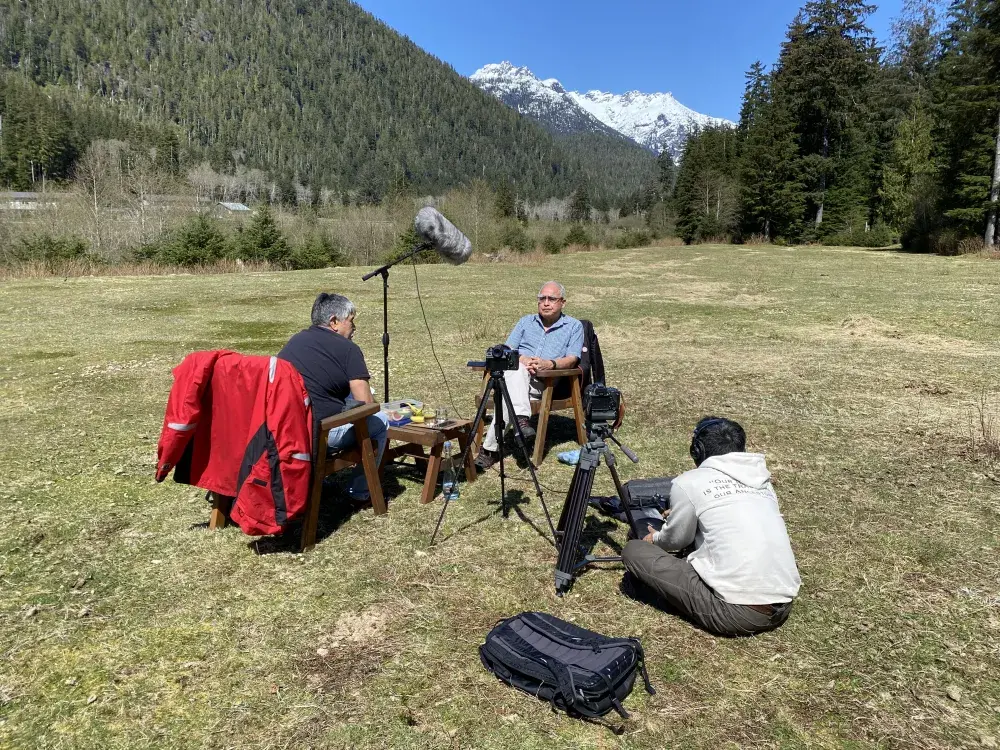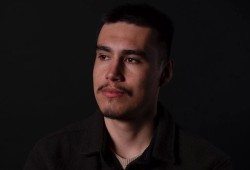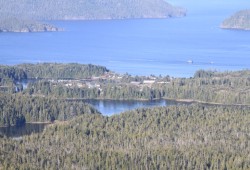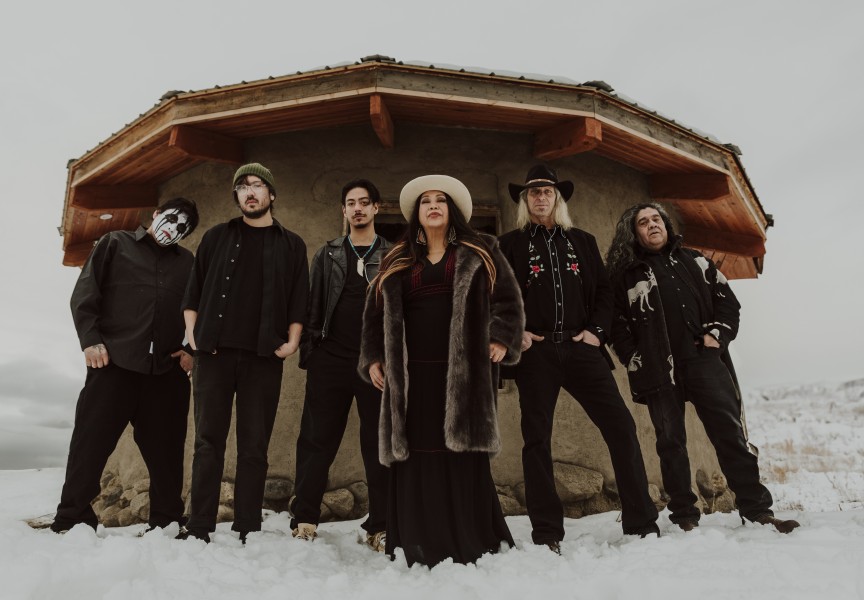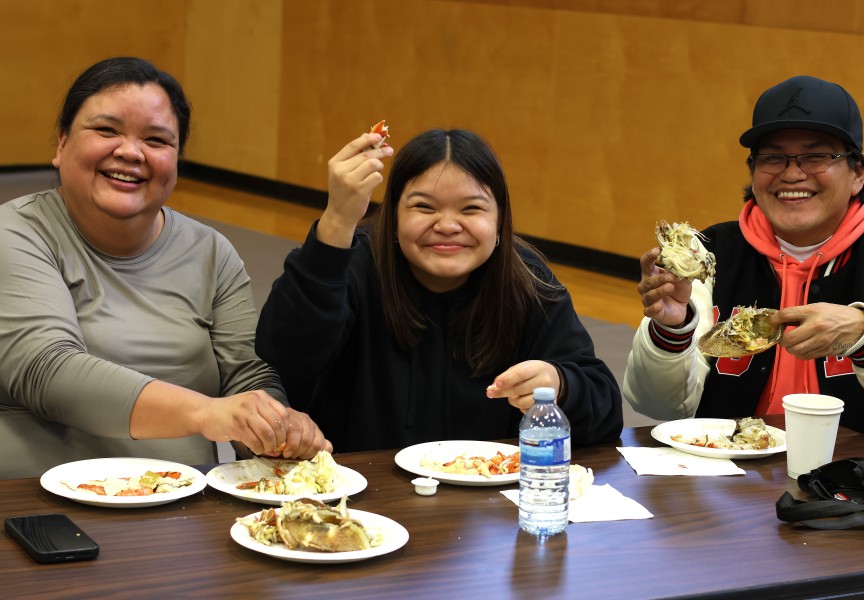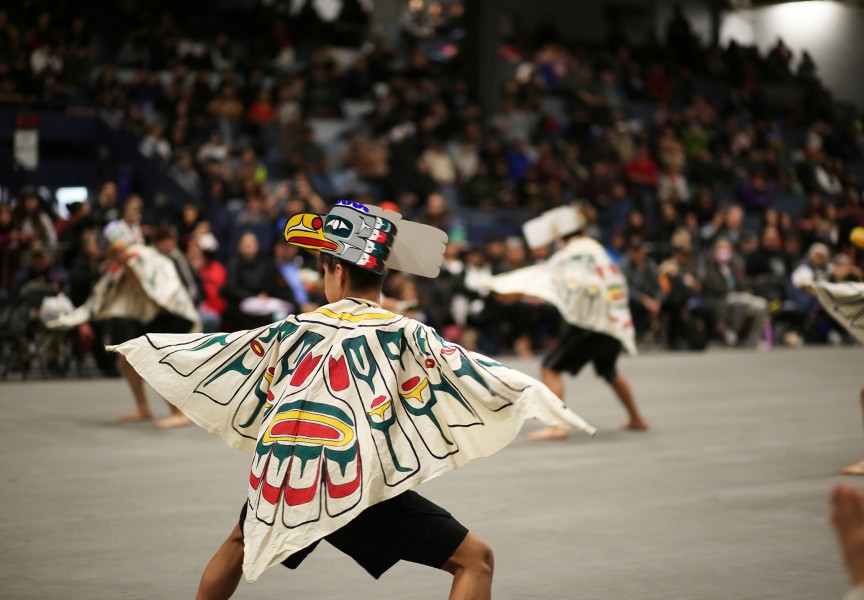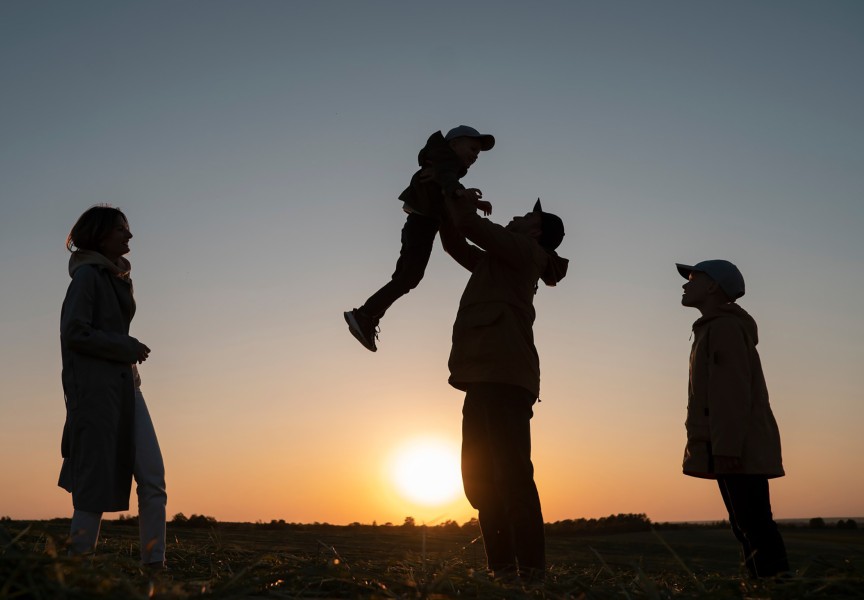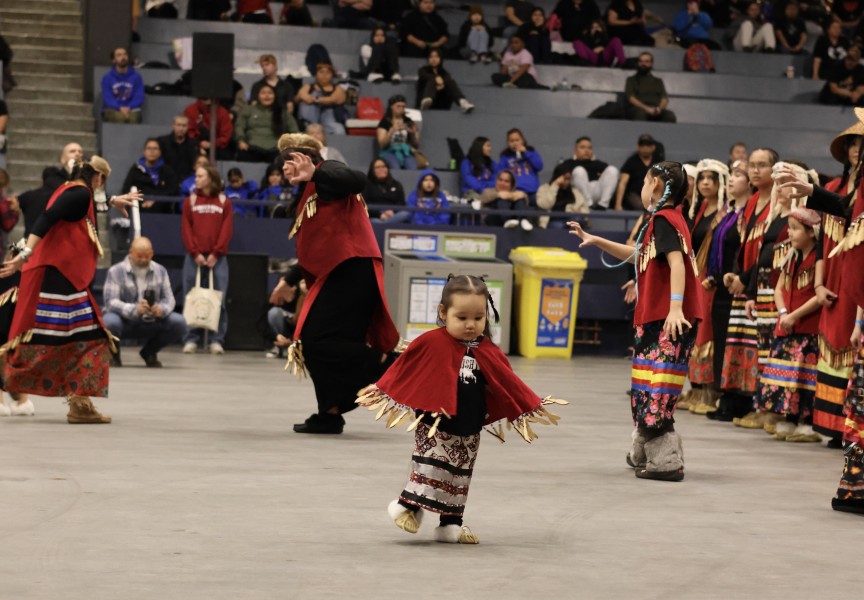Ahousaht Tyee Ha'wilth Maquinna (Lewis George) and grandson Jaiden George are preserving the history and knowledge of their people by video recording extensive interviews with elders.
In early spring 2023 they launched the project with elder Harold Little and have since sat down with 15 others. They have about eight more Ahousaht elders left to go on record with, offering up priceless “Haahuupa” (continuous teaching with care) about Ahousaht culture, history, and the region.
“They are really generous with what they share,” said Jaiden, a future Ahousaht hereditary chief, who isa graduate of the Emily Carr University of Art + Design bachelor of fine arts and photography program.
While Jaiden takes care of the camera work, lighting and audio for each interview, Maquinna facilitates the conversation with a list of 100 questions at the ready. Each elder begins by introducing themselves in Nuu-chah-nulth language and then Maquinna delves into a range of topics from family lineage, territorial boundaries and cultural practices, to life growing up in the village, boat names and harvesting traditional materials.
Besides the session with sisters Greta and Winnie Charlie, the interviews are conducted one person at a time.
“We go as long as the person is comfortable going,” said Jaiden. “The longest interview we’ve had has been with Ron Hamilton. That took place over the course of five days total. Each one of those being five-hour days. We have about 25 hours of footage. His interview is actually my favourite. He’s incredible.”
“The first day we sat down with him we got through about three questions because his answers are about two hours long,” continued Jaiden, adding that Hamilton had a circular way of answering questions.
AHOUSAHT-OTOOSAHT WAR
To date, the project has captured historical information going back about five generations. In the 1800s, Ahousaht went to war with Otoosaht, a group that lived on the outer beaches of Flores Island.
“I would say it’s the largest event that’s happened in our recent history outside of colonization,” said Jaiden.
Maquinna shared that the war between Ahousaht and Otoosaht lasted over 13 years.
“This little baby was born when the war started and when the war ended the little baby girl was a young lady, so they were figuring about 13 years that the war took place,” said Maquinna.
The Otoosaht were stopping the Ahousaht from accessing fish in their territory, so the chief declared war.
“The war went on and on and many, many people were killed,” said Maquinna.
Ultimately, Ahousaht conquered Otoosaht, and the neighbouring tribes of Manosaht and Keltsmaht amalgamated with Ahousaht.
“The people of Otoosaht fled all the way down to Neah Bay, Washington,” said Maquinna. “During the canoe journeys we had people who were original Otoosahts and they were wanting to know how we felt about them. I sent a message back, I said, ‘The war has been over for a long time. You guys should come home, and I invited them back to where their original lands were’.”
PRESENT DAY issues
During the interviews, Maquinna asks the elders to share their thoughts on present day issues like the crisis the community is facing when it comes to substance abuse.
“The colonization of our people is really evident. We have a lot of work to do with getting back to who we are as First Nations people,” said Maquinna, adding that many of the elders talked about the change in traditional diet.
“Their time to now, our people are getting away from the diet that they had. Fish, sea urchin, crab, mussels, all of the rich food that we once ate, we’ve gotten away from and we are seeing a lot of diabetes coming into our community and that’s because of sugar,” Maquinna shared.
The elders passed on stories about cultural practices like funerals. Back in the day, reveals Maquinna, children and pregnant women were kept away from funerals to “protect the child and unborn child from hurt”.
“One of the elders told us he was 19 years old when he first attended a funeral. You know how difficult it is for adults to (handle) the broken heart, the tears. The grieving part of it is just too much for kids,” said Maquinna.
One of the final questions Maquinna poses to the elders is about giving advice to future generations.
“They all were saying to be kind. Kindness was what really showed up in the end here,” he said.
PROJECT SCOPE
Jaiden is using Otter AI to help transcribe all the interviews and the videos are backed-up on multiple hard drives, which he keeps in a fire-proof safe.
“That’s really important to us. There have been efforts in the past to do something like this wherein all the information has been lost. Like all of the data was lost, which is insane. That would be a nightmare for me,” said Jaiden, noting that a lot of the project has to do with organization.
To find information efficiently, he’s assigned codes to each elder and also uses codes for specific locations and more.
“The whole point of it is to be able to search it up easily and very quickly identify who said what and when and what place it pertains to,” Jaiden explains.
The second component of the project is the lofty task of mapping all the different points of interest and village sites, plus creating shareable information about place names.
“For students to be able to see this I think is really, really important. And also for the general public,” Jaiden said, noting that he envisions points of interest signage with QR codes that can access elders’ teachings.
The Maaqutusiis Hahoulthee Stewardship Society is funding the Elders Knowledge Documentation initiative and they hope to have all the interviews complete by the end of summer 2024.
Ahousaht matriarch Florencemit Atleo was 95 when she passed away recently in January… Some say she was the eldest member of the Nuučaan̓uł.
“We didn’t get to her,” Jaiden sighed. “And that’s the nature of what we are doing and that’s why it’s urgent. We won’t have the opportunity to do this forever.”

